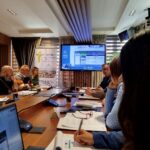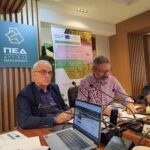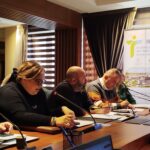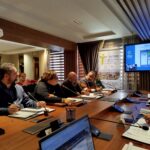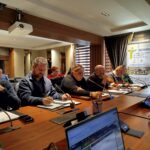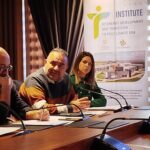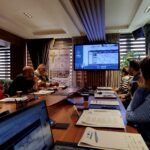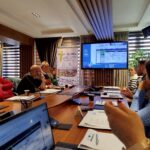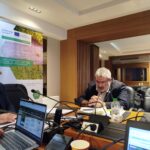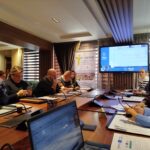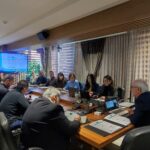
The 2nd Local Stakeholders’ Meeting of the COMMIT project was successfully held on December 16, 2024, at the headquarters of the Regional Union of Municipalities of Western Macedonia in Kozani. Hosted by the Energy Transition & Development Transformation Laboratory (ENTRA Lab), the Institute of Energy Development and Transition to Post-lignite Era, and the Municipality of Eordaia, the event brought together representatives from academia, public actors, civil society, and the business sector to discuss strategies for advancing green skills and supporting small and medium-sized enterprises (SMEs) in the energy transition.
During the meeting, the use of Fuzzy Cognitive Mapping (FCM) allowed participants to collaboratively analyze key parameters and priorities for a sustainable transition. The discussions highlighted the importance of public participation and awareness as foundational elements for fostering inclusivity and engagement in the energy transition process. Participants underscored that digital skills are essential, with digital transformation going hand in hand with energy transformation. They also emphasized the need for technological, manufacturing, and management services to support SMEs in adapting to a low-carbon economy.
A specialized legislative and working framework was deemed necessary to guide the development of green skills and ensure that policies effectively address the needs of businesses and local communities. The meeting also focused on the importance of leveraging local knowledge and addressing local needs by linking academic institutions with SMEs. By doing so, the region can foster innovation while ensuring solutions are tailored to its specific challenges.
Participants highlighted the potential of connecting green skills with the region’s cultural and natural environment to promote sustainability and local development. They also pointed to the critical role of certifying green skills and monitoring the carbon footprint of SMEs as a way to align with the Sustainable Development Goals (SDGs). Additionally, access to financial instruments was recognized as a fundamental enabler for implementing green strategies and fostering technological advancements.
The meeting demonstrated the interconnected nature of these priorities, reinforcing the importance of creating a green business culture that integrates sustainability at every level of operations. The insights generated during this meeting mark a significant step forward in empowering SMEs and ensuring a just and inclusive energy transition.








